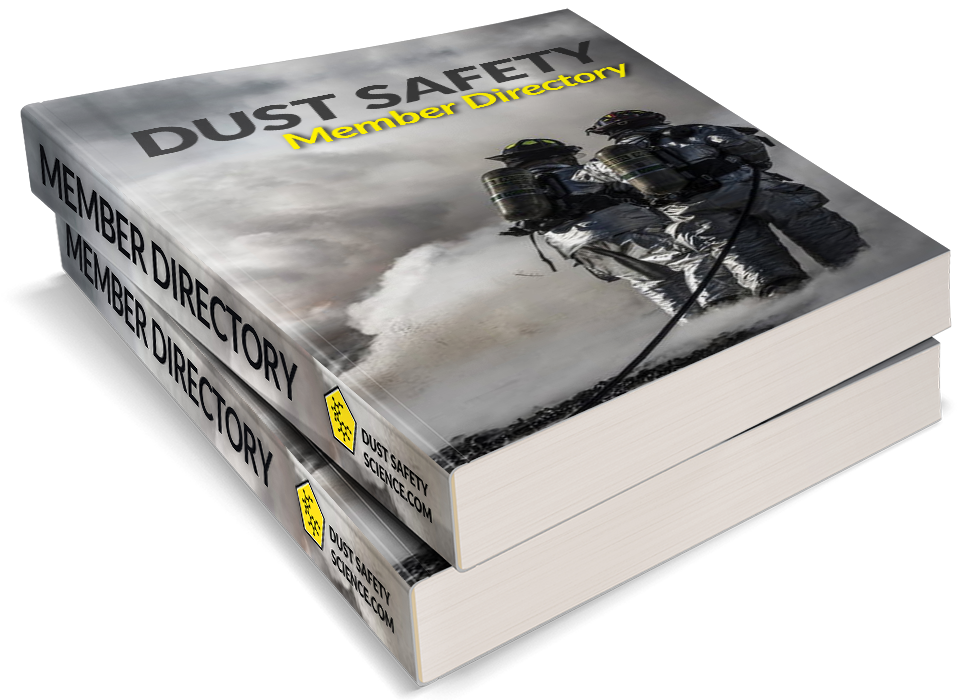In today’s episode of the Dust Safety Science podcast, Justin Beal, who is an inspector and fire prevention engineer with the City of Fresno, California as well as a principal at Pacific Consulting and Risk, discusses the challenges in regulating combustible dust processing industries in California.
In his position with the city, Justin reviews various types of fire risks and enforces applicable codes. California currently follows the 2018 International Fire Code, which has been modified to become the California Fire Code. With his consulting business (Pacific Consulting and Risk), he assists a lot of agricultural businesses and facilities in central California.
What is the Regulatory Environment for Combustible Dust in California Like?
“As far as the regulatory environment goes, California is a little bit different,” Justin says. “We have our own Department of Industrial Relations that has its own series of regulations that relate to combustible dust. That is a little bit different because they have that series and they enforce that on the worker safety side. But it also encompasses some of the processes and conditions and installations from the Fire Code side.”
He acknowledged that enforcement and training can be difficult for different reasons. Staffing is a challenge for fire departments everywhere and equipment training tends to be focused more on specific products or installations.
“There is, unfortunately, a real lack of training on the regulatory side. I think that is quite challenging. So I think from that standpoint, we all don’t have enough money on the municipal side, we all don’t have enough training, and we all don’t have enough staff.”
How Do Regulators Get Involved With the Industries That are Potentially Handling Combustible Dust?
Justin explained that on the new construction side, businesses usually reach out when they are seeking permit applications for new processes or new pieces of equipment.
“Lots of departments would like to do a lot more annual maintenance inspections where we’re doing an inspection of the facility to ensure that it is in compliance with the maintenance provisions of the adopted reference standard that regulates it,” he says. “Then you have the field or operation staff side – which are the folks who are doing the operations portion of Fire Department Service. Those folks tend to be a little less enforcement-oriented. They’re more wanting to be able to understand what the risk is or what the materials that they’ll be handling are.”
Does the Number of Different Industries and Companies Present a Challenge?
Justin concedes that the wide range of industries that require regulation makes a uniform approach difficult.
“I certainly understand the desire to do so,” he says. “Why should, for example, a grain handling process want to be treated the same as the person who’s doing additive manufacturing? And so I see that those things are very different from one another. They pose very different levels of risk. But at the same time, that type of specialization creates issues for the regulator. On the industry side, there’s a different set of reference documents. There might be different sizes of dust. The dust that you’re dealing with in a lot of cases has a different composition.”
He emphasized the importance of an overarching principle that all California industries can follow and which provides an acceptable level of safety for the vast majority.
Conclusion
Justin concluded the interview by emphasizing that regulators in California have everyone’s best interests at heart.
“We primarily are concerned with the life safety of the occupants of any of these locations, followed by the folks that are going to be responding to some sort of incident out there. We want to make sure that everybody is safe. We do recognize that industry has to move forward and provide valuable jobs and community development. But safety has to come first.”
If you would like to discuss further, leave your thoughts in the comments section below. You can also reach Justin Beal directly:
Email: [email protected]
LinkedIn: https://www.linkedin.com/in/justin-beal-mpa-efo-fm-fo-cfps-l-i-o-n-62186517/
If you have questions about the contents of this or any other podcast episode, you can go to our ‘Questions from the Community’ page and submit a text message or video recording. We will then bring someone on to answer these questions in a future episode.
Resources mentioned
Dust Safety Science
Combustible Dust Incident Database
Dust Safety Science Podcast
Questions from the Community
Dust Safety Academy
Dust Safety Professionals
Organizations
NFPA
Thanks for Listening!
To share your thoughts:
- Leave a note in the comment section below
- Ask a question to be answered on the show
- Share this episode on LinkedIn, Twitter or Facebook
To help out the show:
- Subscribe to the podcast on iTunes
- Leave a review and rate our show in iTunes to help the podcast reach more people
